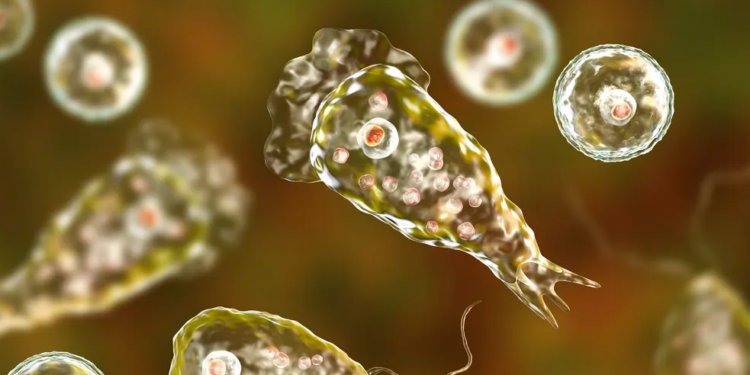Imagine for a moment that there is nothing of worth in this world, as worth has no intrinsic meaning. Each human, like each worm or bacterium, is simply a product of chemical reactions occurring over millennia – biological mass. Eventually, inevitably, they end up replicating certain patterns, as almost any alternate configuration decays its structure, returning it to a chemical soup. Movement of charged particles between some cells results in contraction of others, or avoidance of nearby objects once in motion, or a state within our neurons that increases potential to preserve the pattern and replicate it. At its complex level in humans, we term this ‘thought’.
The state that enhances preservation and replication we can call ‘self-gratification’. It is also called greed – a drive to enhance oneself through the use of other objects. If we are simply chemical constructs, then this is all that matters. Those objects can be anything – rocks, plants or other humans. The object does not matter in itself – other humans become meaningless chemical constructs unless closely sharing the same genetic code. What matters is that their use makes replication of the genetic code that determines our patterns more likely, so that it will persist through further generations. Codes that express greed most effectively may replicate more effectively. This means accumulating wealth and power to safeguard descendants. In this view, our relationship with all other matter only has meaning through its enhancement of ourselves. We are programed for short-term gratification.
The other consequence of viewing humans only as biological mass is that when a body’s internal environment deteriorates to an extent that it can no longer maintain itself, it ends as a specific entity. It is not death, as ‘life’ never really existed. A highly complex set of chemical reactions ceased to be self-sustaining and another cascade took over, breaking down the physical structures the former had produced. The neuronal circuitry we call the mind disintegrates, and what we call thoughts stop. This end seems like looking into a void of blackness, except there will be nothing to look. The horror or fear this may induce is not meaningful in any way – just a product of more chemistry tuned toward persistence for self-replication.
However, it is horror and fear to the extent that a body perceives it or feels it, and many people do every day. We feel a horror when staring into the void, and that has made humans wonder for millennia whether there is more than emptiness and self-gratification. Such thoughts can be put aside by doing things that distract us – numbing our brains with drugs, concentrating on the pursuit of money or using and disposing of any other object to satisfy our drives. These may include humans on an Epstein Island, families in the way of a pipeline, or children in a mine digging rare earths for smartphones. It really does not matter who or what they are, if there is no real meaning to existence. Any abuse to enhance the self is rational. It is just nature playing itself out.
The only viable alternative to staring into the void is the opposite: total unmeasurable meaning. If absence of meaninglessness is a possibility, then there is no middle ground. Meaning implies infinite and omniscient presence, and an absolute absence of irrelevance. If we have glimpsed both the void and the infinite, we see they cannot be reconciled. Recognising meaning beyond ourselves makes possible all we cannot understand directly – demons, angels, evil and unrelenting love. Because reality is no longer bound by deterministic processes, it implies realities beyond physics and time.
If we see life that way, then we have a perspective that is incompatible with the perspective of those who see us all as temporarily complexities. The concept of ‘we’ itself is incompatible between these two viewpoints. We may have experienced the black horror of emptiness, but we cannot be limited to a path that ends in it. We can only understand the fear of those who have seen no further, and recognise the implications of suppressing the infinite from our thoughts. We are all tuned by our chemistry to be capable of that.
The impossibility of reconciling these two world views is the only way to make sense of an omniscient presence appearing as a baby to socially non-conforming parents in a subjugated population, and then being killed off early with no legacy beyond local memories of what he had said and done. An infinite presence living and dying in relative obscurity in the Middle East means the power humans seek must be irrelevant compared to the value of life itself, the value of simply being as a human. The value of any person must be immeasurably greater, and have immeasurably more meaning, than the power and wealth of a corporation, country or cause. A being who must rationally have understanding infinitely greater than ours has demonstrated entirely different values.
Those that recognise this and seek to act accordingly, however inadequately, can never look smart or rational to those who see only the void. Even those who glimpse the infinite can never expect to well understand it, as we are limited by the vessels we inhabit. We can only understand the incompatibility of the two possible world views, and perhaps begin to see why things then play out in this world as they do.
The Christmas story, beyond the current themes of presents, food and self-gratification, provides a window on how distant the world’s dominant value system is from that which a recognition of meaning in life represents. And why these two value systems, or understandings of reality, cannot be reconciled. An image of a baby lying in a borrowed haybox is so far removed from the world’s view of success that it can only come from another place, and mean something completely different.
Dr. David Bell is a clinical and public health physician with a PhD in population health and background in internal medicine, modelling and epidemiology of infectious disease. Previously, he was Programme Head for Malaria and Acute Febrile Disease at FIND in Geneva and coordinating malaria diagnostics strategy with the World Health Organisation. He is a Senior Scholar at the Brownstone Institute.












To join in with the discussion please make a donation to The Daily Sceptic.
Profanity and abuse will be removed and may lead to a permanent ban.
How many climate ‘science’ papers and authors would this highlight?
Deleted – link didn’t work.
Its here: https://arxiv.org/pdf/2402.04607.pdf
Chart in the text above is on page 11.
But at the end of the day, unscrupulous scholars with an ideology to push are going to use every means possible to grandstand their ideas no matter now unethical, aren’t they?